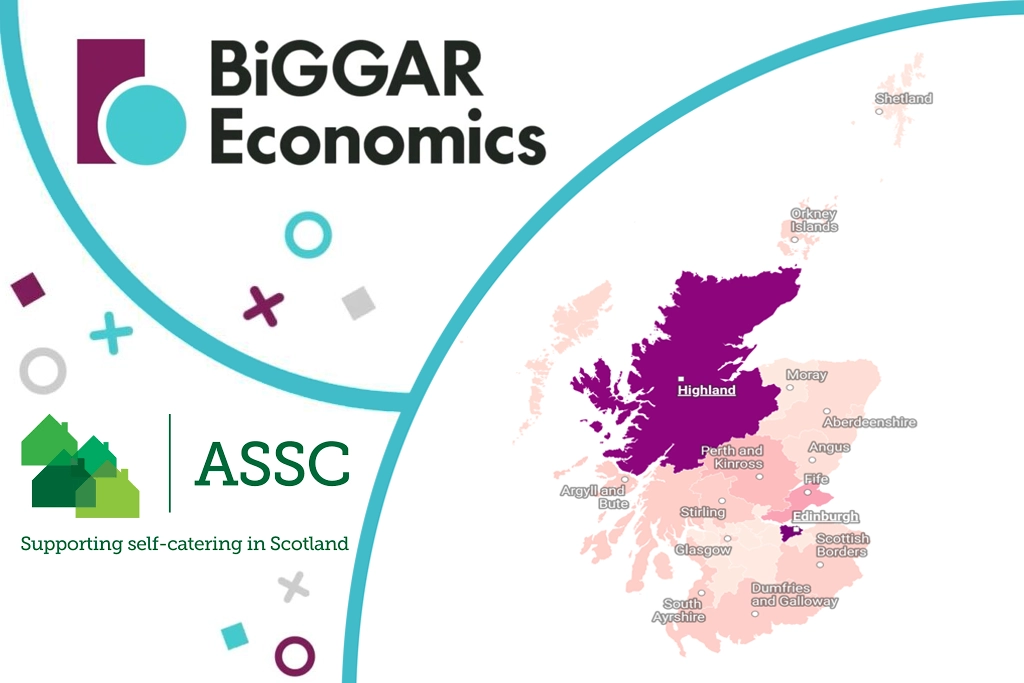
Scottish Economy: The Impact Of Short-Term Lets
Bombshell Report Reveals Positive Effects On The Scottish Economy
A ground breaking report by BiGGAR Economics shows that short-term lets (STLs) significantly boost the Scottish economy by £864 million per year. This independent analysis dispels myths about STLs negatively affecting the housing market, highlighting their negligible impact on housing availability.
The Economic Contributions Of Short-Term Lets
Short-term lets contribute nearly £1 billion gross value added (GVA) to Scotland’s economy. This sector supports approximately 30,000 jobs, proving to be a vital component of the country’s economic framework. Visitors who choose self-catering accommodations, also known as secondary lets, spend more than the average tourist, thereby generating extensive economic activity.
According to BiGGAR Economics, the local economic impacts of STLs surpass those of residential properties. Each property supports an additional £32,400 GVA, showcasing the crucial role of STLs in the broader economy.
Dispelling Housing Market Myths
Contrary to popular belief, STLs make up only 0.8% of Scotland’s total housing stock. This proportion is too small to significantly influence housing availability or prices. In fact, the report highlights that economically inactive empty homes constitute a larger share of the housing market than STLs.
Regional Economic Impact
The economic benefits of STLs are spread throughout Scotland, with Edinburgh and the Highlands accounting for 44% of the total impact. However, even regions outside these areas experience substantial economic gains from the self-catering sector.
Comparison With Residential Properties
BiGGAR Economics’ research shows that an average owner-occupier or private rented household in Scotland contributes £14,451 annually in GVA. In stark contrast, a two-bedroom STL generates £50,159. This disparity underscores the economic efficiency of STLs compared to traditional housing.
Policy Implications
Despite the evident economic benefits, the Scottish Government’s recent STL licensing update has not adequately addressed industry concerns. Local councils, particularly in Highland and Edinburgh, are reviewing their regulatory frameworks, but the report urges them to consider the economic evidence carefully.
Industry Leaders Speak Out
Graeme Blackett, Director of BiGGAR Economics, emphasised that secondary lets are crucial for Scotland’s tourism and economy, supporting nearly 30,000 jobs. He warned that stringent regulations on STLs could harm the tourism sector without addressing the housing crisis.
Fiona Campbell, CEO of the Association of Scotland’s Self-Caterers, echoed this sentiment. She called for balanced regulations, highlighting the near £1 billion economic impact of STLs and their role in supporting local economies.
Conclusion
The findings by BiGGAR Economics present compelling evidence that short-term lets are not a primary cause of Scotland’s housing crisis. Instead, they play a pivotal role in boosting the Scottish economy. Policymakers are urged to focus on the actual causes of the housing crisis rather than undermining a sector that supports thousands of jobs and contributes significantly to local economies.
For more information, a link to the full report can be found here.
About BiGGAR Economics
BiGGAR Economics is a leading economics consultancy providing economic analysis and advice for central and local government, economic development and other government agencies, universities, colleges, social economy organisations and private sector firms across Europe. The aim of BiGGAR Economics is to deliver meaningful impact. This includes ensuring that the best quality economic evidence possible is available to decision-makers.
About The ASSC
Founded in 1978, the Association of Scotland’s Self-Caterers represents over 1,700 members, operating self-catering properties throughout Scotland, from city centre apartments to rural cottages, to lodges and chalets, to castles. Their vision is that the ASSC takes the leading role in advancing a vibrant and prosperous self-catering sector recognised as pivotal to the future of Scotland’s tourism economy. Their purpose is to empower their diverse and professional membership, enabling them to deliver exceptional experiences to guests. Their focus is on supporting businesses and communities in the promotion of Scottish self-catering as a sustainable, inclusive and responsible form of accommodation.
RECENT POSTS
OPENING HOURS
| Monday - Friday | 9:00 - 17:00 |
| Saturday | 9:00 - 12:00 |
| Sunday | CLOSED |
